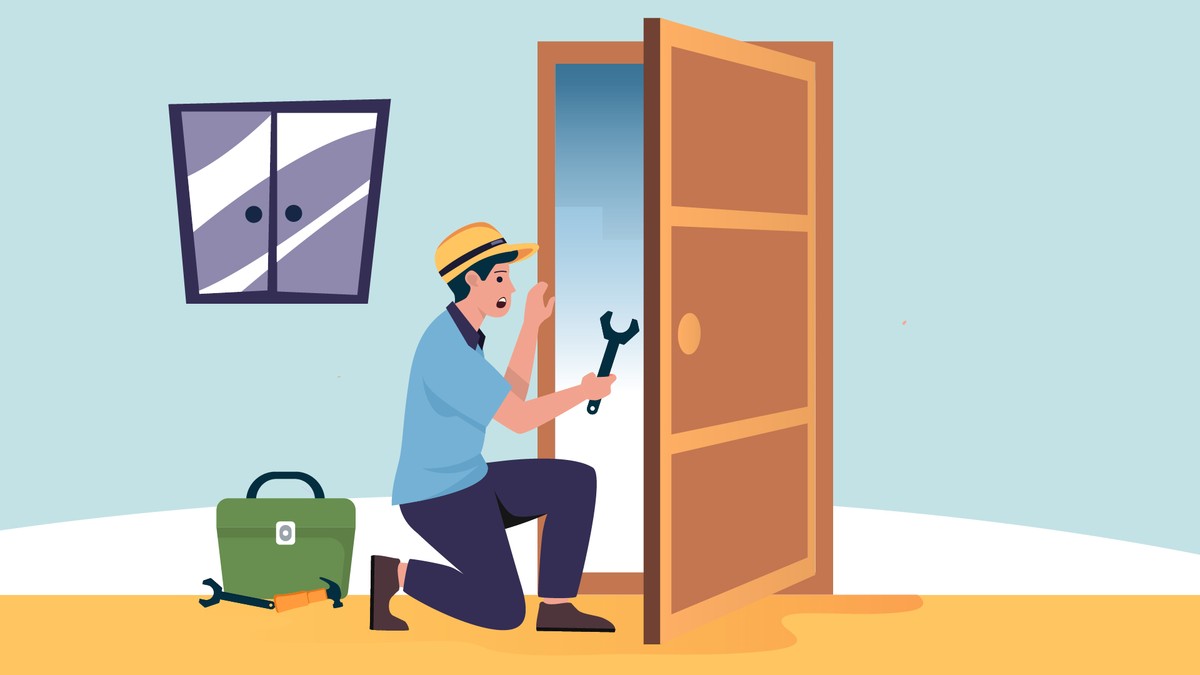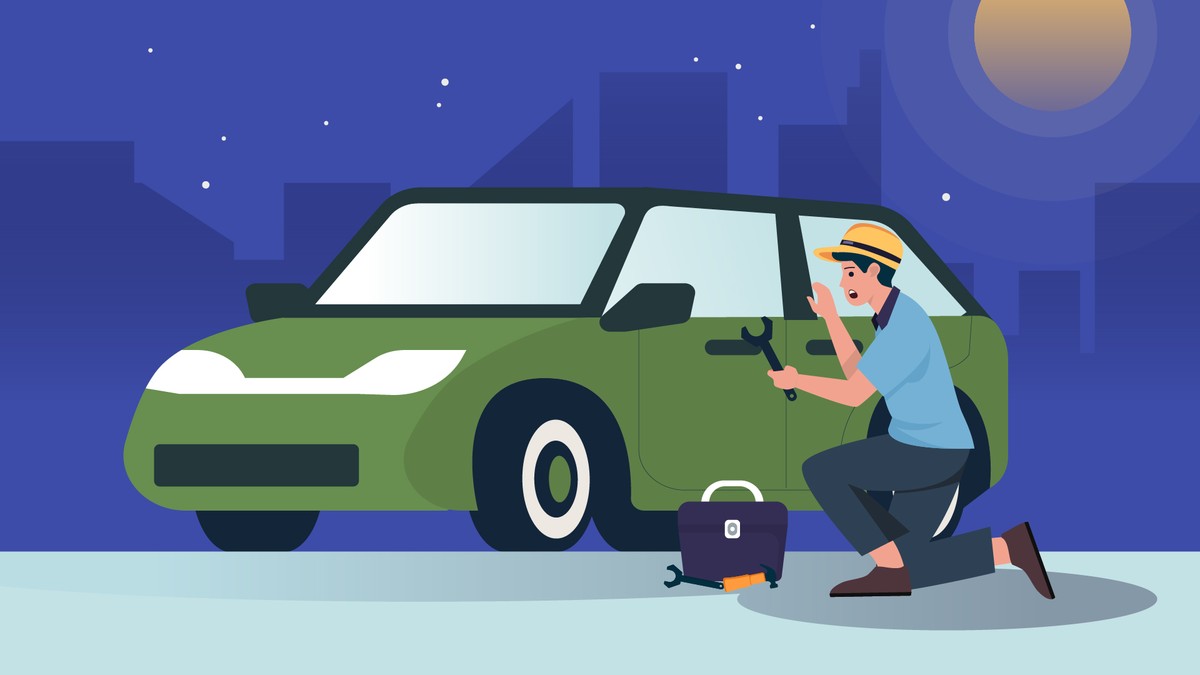
Locksmith Business Insurance (A Quick Breakdown)
·
9 minute read
Nearly everyone has used a locksmith at some point in their lives. From installing, repairing, and replacing locks on houses, businesses, and vehicles, to duplicating keys and coming to the rescue when people are locked out of their homes, a locksmith is the first person to call in many situations. They try to protect people from break-ins and thieves, but who protects them? That’s what locksmith insurance is for.
Why do locksmiths need insurance?
Locksmith insurance is an essential tool that helps protect your business against financial and legal implications. It can:
- Shield you from liability: Locksmiths face various risks, from potential damage to clients’ properties during the course of a job, to worker injuries when responding to emergency calls. You could also face claims for poor workmanship if you make a mistake.
- Fulfill mandatory requirements: Some states, areas, or individual clients might require you to have business insurance (and likely a license) before you can provide services. For example, nearly every state requires you to carry workers compensation if you have one or more employees.
- Provide assurance to clients: When a locksmith is covered by insurance, clients know they won’t lose money if you make mistakes or issues arise from your work. Many customers know that they shouldn’t hire a contractor without insurance.

Looking For The Right Locksmith Insurance Quote?
Get started on a quote online or schedule an appointment with a risk advisor!
Types Of Insurance Locksmiths Need
Locksmiths have a variety of specialties and work in many locations, and may not have a large office or even any office at all. Despite the differences, most need these types of locksmith insurance.
Professional Liability
Professional liability insurance, also called errors and omissions (E&O) insurance, is crucial because locksmiths are responsible for ensuring the safety and security of property and individuals. This type of insurance provides coverage for claims related to your advice, recommendations, or professional services, including oversights and mistakes. If you do security or alarm work, it’s even more important, as it will cover you if your work results in a security flaw that costs a client money.
General Liability Insurance
Commercial general liability covers third-party liabilities at your office or a jobsite. For example, if one of your employees damages a door while installing a lock, it would cover the cost to repair or replace the door. Or, if a homeowner trips on a tool that an employee accidentally leaves out, it would cover their medical bills and any legal fees. It also includes premises liability, which you’ll need if you have a business location.
Employee Dishonesty
This type of locksmith insurance protects you from the costs of theft, fraud, or other dishonest acts committed by employees. For example, if an employee steals client property while on a jobsite, you’d be covered. It also covers forgery, alteration, unauthorized transactions, and more.
Commercial Automobile Liability
If you have even one business-owned vehicle, commercial auto insurance is a must-have. It covers the costs of medical bills or vehicle damage if you or an employee gets in an accident on the way to or from a jobsite. It’s especially important if you make emergency calls at night.
Workers Compensation
Being a locksmith might seem low-risk, but you and your employees could still sustain injuries while working with tools or walking around an unfamiliar area. Workers compensation covers medical expenses, lost wages, and disability benefits for on-the-job injuries, and also protects you from legal claims. Most states also require you to have this insurance if you have at least one employee.

Locksmith Insurance Claims Examples
Looking at some common situations locksmiths find themselves in can help clarify what you need—and why you need it.
Damage During Car Lockout Service
Scenario: A person called a locksmith because they locked themselves out of their care. While attempting to unlock the vehicle, the locksmith scratched the car’s paint and damaged the window mechanism.
Claim: The car owner filed a claim for the cost of repairs for the scratches and the broken window mechanism.
Outcome: The locksmith’s general liability insurance covered the cost of the repairs.
Employee Dishonesty Leads to Property Loss
Scenario: An employee copied keys without permission and later used them to access and steal from clients’ properties.
Claim: Several clients reported thefts and the employee’s actions were discovered. The clients filed claims for compensation.
Outcome: The locksmith’s employee dishonesty coverage responded to the claims and covered the losses.
Injury During Emergency Home Service
Scenario: Responding to an emergency home lockout during the night, a locksmith tripped over a garden hose in the yard, breaking his wrist.
Claim: The locksmith filed a workers comp claim for medical expenses and lost wages during recovery.
Outcome: The locksmith’s workers comp insurance covered the employee’s medical bills and provided wage replacement while he recovered.
Vehicle Accident During Service Call
Scenario: On the way to a jobsite, a locksmith’s van collided with another vehicle, causing significant damage and injuring the other driver.
Claim: The other driver filed a claim for vehicle repairs and medical expenses.
Outcome: The locksmith’s commercial auto policy covered the costs of the accident.
How much does locksmith insurance cost?
The cost of locksmith insurance varies based on a number of factors, including the types of services you offer and your physical locale:
- Location: Businesses in areas with more insurance claims, like densely populated cities, may have higher premiums. Operating in high-crime areas can also raise the cost to cover your premises, equipment, and vehicles.
- Business Size: The larger the business, the more insurance you’ll need to cover all of your tools, equipment, and vehicles. You’ll also pay more for workers comp if you have more employees. Business size is usually determined by your payroll and revenue estimates.
- Value of Equipment: If you offer specialty services, like safe-breaking or alarm installation, you might need to cover expensive equipment. This will result in higher locksmith insurance premiums.
- Experience and Claims History: If you operate an established business with only a few claims, you’ll likely have lower premiums. With each claim made against you, your premiums will go up.
Highest Risk Locksmith Businesses
The specific services you offer also affects the cost of your locksmith insurance. These are the two highest risk locksmith operations:
- Alarm Installation: Many locksmiths install alarm systems or provide security consulting, but it can make finding insurance a little tougher and sometimes more expensive.
- On-Call Services: Emergency services can increase risks, especially when traveling to unfamiliar or high-crime areas. Round-the-clock operations can make it tougher to find both general liability and workers compensation policies.

Tips For Improving Your Locksmith Insurance Rates
Whether you’re an independent operator or a multi-city business, and even if you have a high-risk specialty, there are things you can do to get better locksmith insurance rates.
- Background Checks: Ensure all employees undergo thorough background checks before hiring to reduce risks of theft and fraud.
- Regular Equipment Audits: Conduct frequent checks to prevent theft and ensure tools are in working condition.
- Safe Driving Protocols: Establish guidelines and provide training for locksmiths who drive, especially during on-call hours.
- Continuous Training: Ensure locksmiths are up-to-date with the latest in lock and security technologies so that they don’t make mistakes or overlook something important.
The Bottom Line
As in many industries, a locksmith covered by insurance is going to get more work than one who isn’t. But finding the best coverage for the lowest rates can be a challenge, and you don’t want to end up filing a claim and finding out that you’re not insured for that situation. Make sure you have comprehensive locksmith insurance by talking to an expert at LandesBlosch. We can help you build the right policy and compare quotes from top insurance companies.
About The Author: Austin Landes, CIC
Austin is an experienced Commercial Risk Advisor specializing in and leading LandesBlosch's design professional, real estate, and construction teams.




